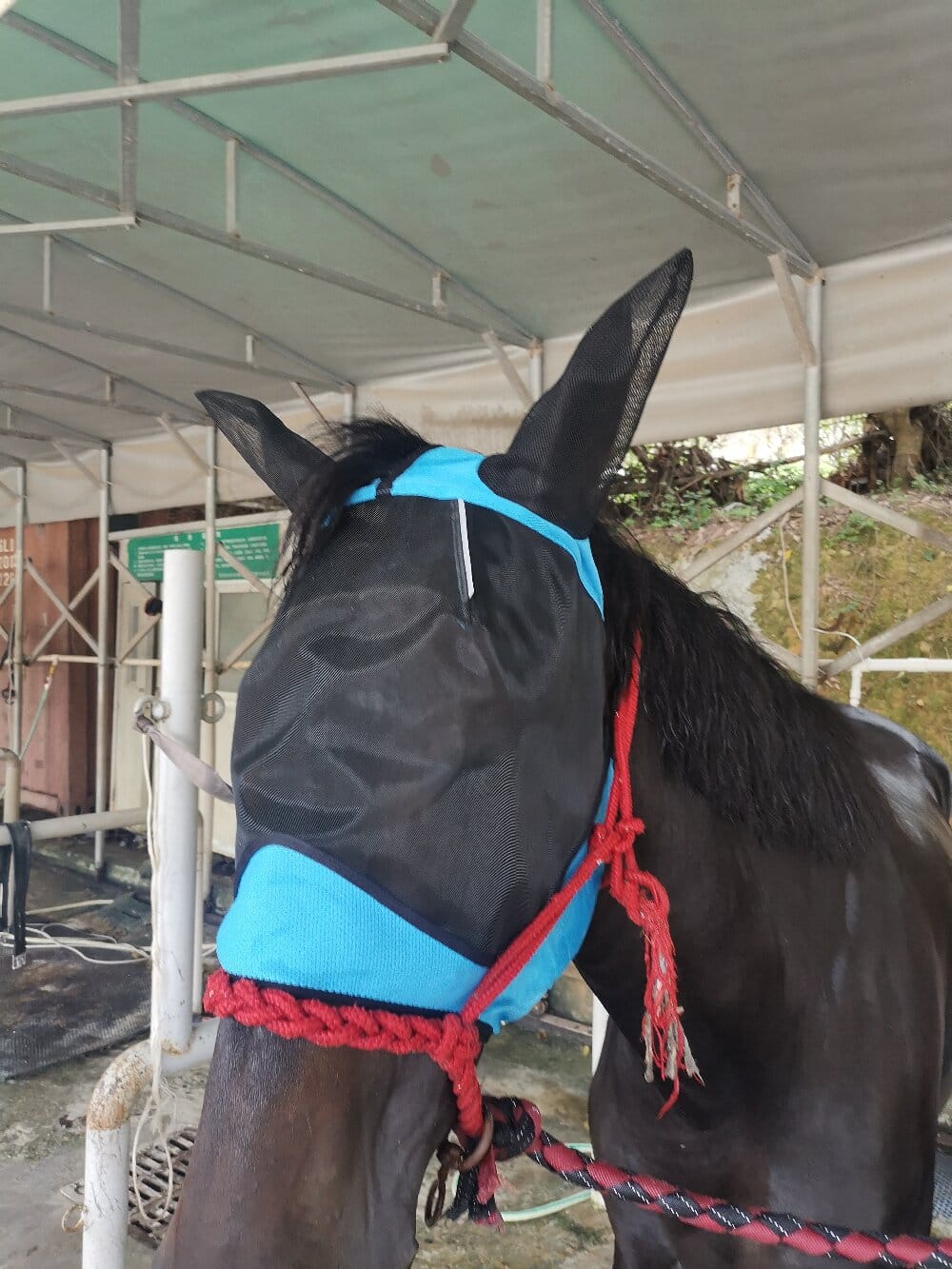If you’ve ever watched your horse swatting away flies with its tail or shaking its head in frustration, you know how annoying pests can be. A horse fly mask isn’t just an accessory—it’s a necessity for protecting your equine friend from insects, UV rays, and eye irritants. In this case study, we’ll explore how one horse owner transformed their animal’s comfort and health with the right fly protection.
The Problem: Flies and Eye Irritation
Meet Bella, a 10-year-old mare who spent her summers in a sunny pasture. Her owner noticed she was constantly rubbing her face against fences and trees to relieve itchiness caused by flies. Worse, Bella developed watery eyes and minor infections from debris and UV exposure. Traditional fly sprays helped temporarily, but they wore off quickly and required frequent reapplication. That’s when her owner decided to try a fly mask for horses.
The Solution: Choosing the Right Horse Fly Mask
Bella’s owner researched several options before settling on a lightweight, breathable mesh mask with UV protection. Here’s what made the difference:
- Material: Soft, durable mesh that didn’t trap heat.
- Coverage: Extended design to shield eyes, ears, and even the muzzle.
- Fit: Adjustable straps to prevent slipping without causing rubs.
- Visibility: Clear eye panels for unobstructed vision.
The Results: A Happier, Healthier Horse
Within days of wearing the equine fly mask, Bella’s behavior changed dramatically. She stopped rubbing her face, her eyes cleared up, and she seemed more relaxed in the pasture. Her owner also noticed fewer flies bothering her, thanks to the mask’s full coverage. The UV protection prevented sunburn, and the breathable fabric kept her cool even on hot days.
Key Benefits of Using a Fly Mask
Bella’s case isn’t unique. Here’s why many horse owners swear by fly masks:
- Insect Protection: Reduces the risk of infections from fly bites.
- UV Shielding: Prevents sunburn and eye damage.
- Comfort: Eliminates constant swatting and irritation.
- Durability: High-quality masks last multiple seasons.
Common Mistakes to Avoid
Not all fly masks are created equal. Bella’s owner learned these lessons the hard way:
- Poor Fit: A loose mask can slip, while a tight one causes rubs.
- Low-Quality Materials: Cheap fabrics may tear or irritate the skin.
- Ignoring Weather: Some masks aren’t suitable for extreme heat or rain.
Final Thoughts: Is a Fly Mask Right for Your Horse?
If your horse struggles with flies, UV exposure, or eye irritation, a horse fly mask could be a game-changer. Bella’s story shows how the right gear can improve comfort, health, and overall well-being. Invest in a high-quality mask, ensure a proper fit, and watch your horse enjoy a pest-free summer.

